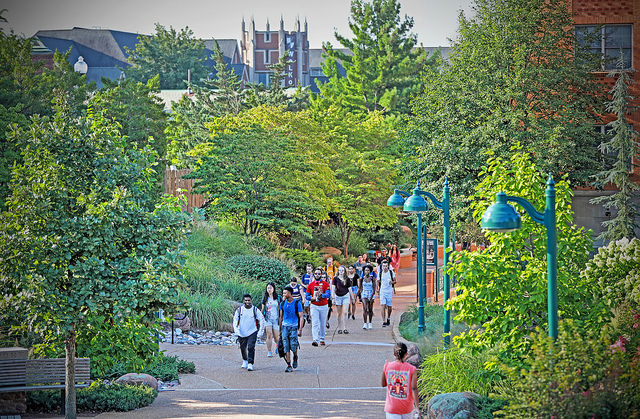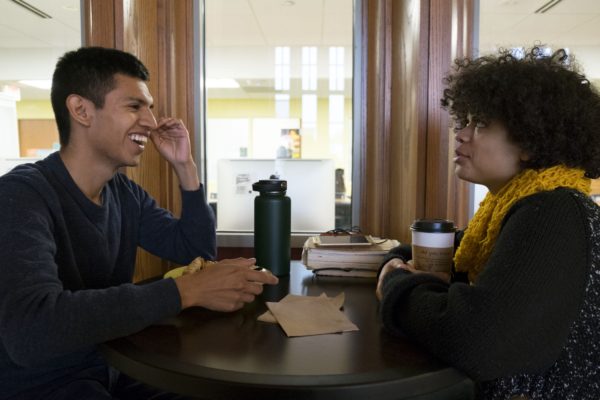
Washington University is launching grants to help low-income students transition to college. (Photo: James Byard/Washington University)
As part of an ongoing effort to provide every student the true Washington University in St. Louis experience, Chancellor-elect Andrew D. Martin has launched two new pilot grants that will help low-income first-year students transition to college.
The one-time grants are:
- a $500 grant to cover or offset the cost of a computer; and
- a $1,500 startup grant to cover necessities such as books, winter clothing and housing supplies.
“At Washington University, we have made great strides recruiting and supporting lower-income students and creating a culture where everyone is welcomed,” Martin said. “But there is more work to do. By removing everyday obstacles like the cost of a winter coat or computer software, we are easing that transition to college and putting our students on the path to success.”
The grants are for first-year students entering in fall 2019 from families with less than $75,000 in family income or who are receiving a federal Pell Grant.
In addition to the pilot grants, Washington University will waive the $1,550 summer earnings expectation for entering low-income first-year students. The elimination of the earnings expectation will result in an overall increase in financial aid.
“No Washington University student should be overwhelmed by the startup costs that come with college,” said Ronné Patrick Turner, vice provost of admissions and financial aid. “These new initiatives will give our students the best possible start to their college careers.”
Turner said her office will measure the program’s reach and impact in the coming years. It is projected to cost about $1 million annually.
Martin said Washington University is committed to continuing to find new ways to provide students the resources they need to engage fully in academic and campus life. Last week, Martin attended the American Talent Initiative’s annual Presidential Summit, where he discussed strategies to expand access and opportunity for talented low- and moderate-income students.
“Talented lower-income students who attend a top university like Washington University are more likely to graduate and access more opportunities,” Martin said. “Our university — and our nation — benefit when students reach their full potential.”
The startup grants are the latest in a series of initiatives designed to support Washington University’s growing number of low-income and first-generation students. Some 14 percent of current first-year students are Pell-eligible, up from 6 percent five years ago. Washington University meets 100 percent of demonstrated need for all admitted students and raised $591 million for student scholarships and fellowships through the recently completed Leading Together campaign.
The university has introduced a number of resources and programs to support low-income students. They include:
- The Student Success Fund, which covers the cost of travel to interviews, academic fees, medical and living expenses during an unpaid internship, along with other costs.
- Deneb STARS, a cohort program that provides community and support to low-income students through academic and peer mentors.
In addition, Student Union, Washington University’s undergraduate student government, has expanded the Student Union Opportunity Fund, which covers the cost of extracurricular activities. In January, Student Union allocated $300,000 to create the Student Opportunity Fund Endowment to support students from all socio-economic backgrounds.
“Our students, staff and faculty are united in our mission to enhance socio-economic diversity at Washington University,” Provost Holden Thorp said. “I’m proud of our work to fund programs and initiatives that are as innovative as they are effective.”


